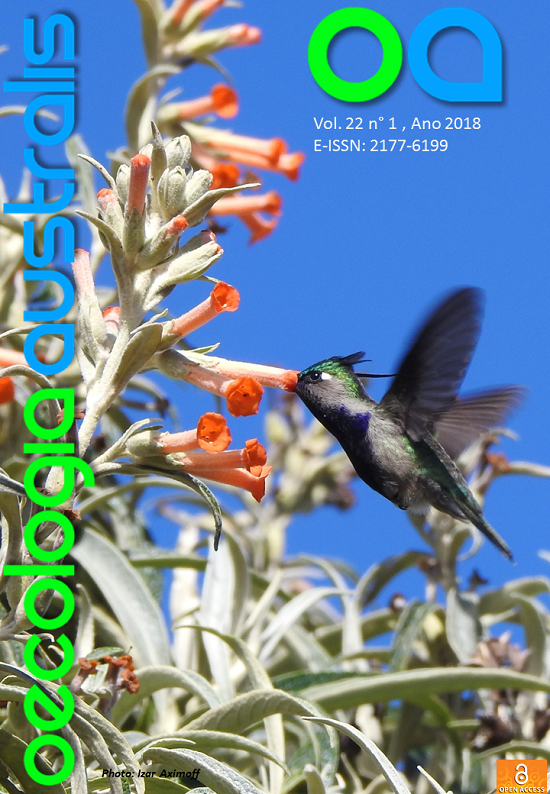EFFECTS OF ENVIRONMENTAL ENRICHMENTS ON THE BEHAVIORS OF FOUR CAPTIVE JAGUARS: INDIVIDUALITY MATTERS
DOI:
https://doi.org/10.4257/oeco.2018.2201.06Palavras-chave:
animal welfare, individual responses, mammal behavior, Panthera onca, zoo animalsResumo
The effects of different environmental enrichments on the behaviors of four captive jaguars, Panthera onca (Carnivora, Felidae), were individually evaluated. The frequency of jaguar behaviors were recorded in three phases: before, during and after environmental enrichments application. These included hose ball, scent trail, meat tubes, cardboard boxes with meat or elephant feces, stuffed pumpkins, meat ice cream, meat with animal hair, bags with meat, and sounds. The enrichments reduced inactivity and the time duration when jaguars were out of sight, and increased general activity and maintenance behaviors of all tested jaguars. However, the behavioral responses expressed considering other behaviors and after the removal of environmental enrichments varied among individuals. When there were no more enrichments in their enclosures, two jaguars seemed to be in a worse condition than before the introduction of them, while the oldest jaguar maintained all the positive effects. The other jaguar expressed intermediate responses between these two patterns after the removal of the enrichments. Although the tested enrichments improved the welfare of the jaguars, we conclude that individual variability of response to the enrichments highlights the need to consider individual variation in future studies, since some individuals may take better advantages from the enrichments than others.


